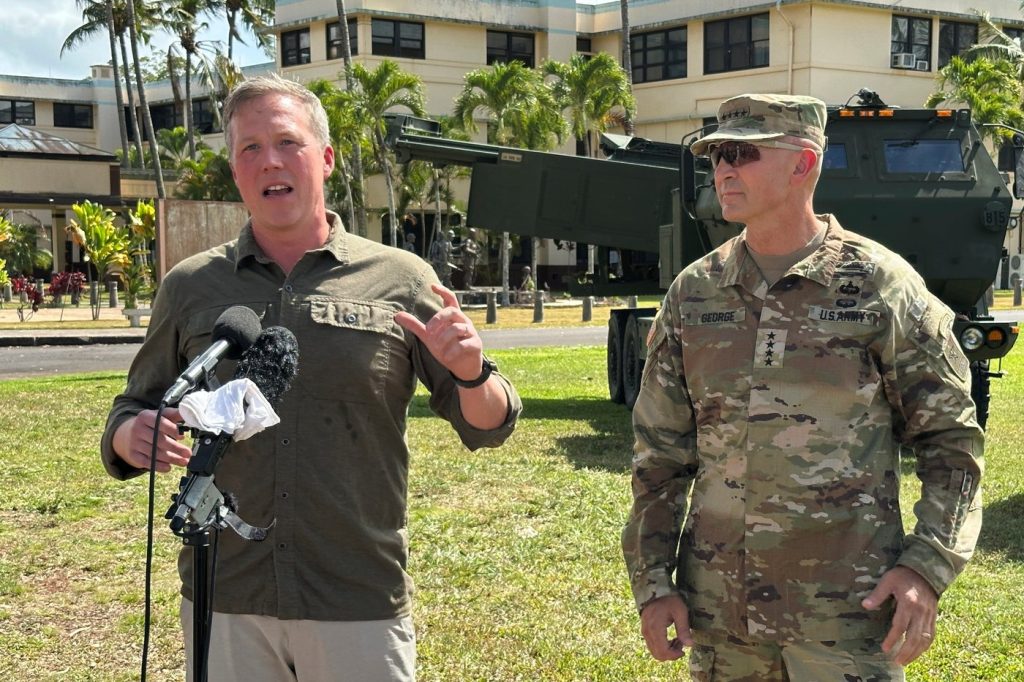SCHOFIELD BARRACKS, Hawaii (AP) – The top civilian leader of the U.S. Army, Army Secretary Dan Driscoll, expressed the need for expedited negotiations regarding a crucial agreement that will allow the military to maintain its operations at the only large-scale live-fire training range for ground forces in Hawaii. This statement came after a meeting with Hawaii Governor Josh Green on Monday, where the implications of the upcoming lease expiration for the Pohakuloa Training Area were discussed.
The U.S. Army currently leases a significant portion of the Pohakuloa Training Area on the Big Island from the state, with the contract set to expire in 2029. Driscoll underscored the necessity of retaining this land, as it enables the Army to rapidly deploy troops to Asia and the Pacific, a strategic need that has grown with increasing assertiveness from nations like China, particularly concerning Taiwan.
A public hearing held in May regarding the potential lease extension received considerable opposition. Many Native Hawaiians and environmental advocates voiced their concerns, citing the U.S. military's historical negative impact on Hawaiian land through practices such as target practice and fuel leaks. These groups expressed their desire for the Army to return the land to the state, criticizing ongoing military operations.
Driscoll emphasized the importance of the Pohakuloa land, located on a rocky plateau at an elevation of about 6,200 feet (1,890 meters) between Mauna Kea and Mauna Loa, stating, "The world is changing. We all know this. The threat in Indo-Pacom is more real than ever before," referring to the U.S. Indo-Pacific Command responsible for military operations in the region.
In a bid to address local concerns and expedite negotiations, Driscoll requested that Governor Green's office provide a list within weeks detailing how the Army can assist the community. He articulated the Army's intentions to contribute positively to a community that has historically supported military efforts while recognizing the pressing geopolitical challenges in the Indo-Pacific.
Driscoll pointed out that alternative live-fire training areas in Hawaii are inadequate for larger battalions and brigades. As a result, military commanders warned that transportation delays in deploying troops to Asia from training sites on the U.S. mainland could hinder deterrence against potential adversaries.
Governor Green reported that he had extensive discussions with Driscoll and his team during their meeting. He affirmed a commitment to explore possibilities related to military leases, ensuring the needs and interests of Hawaii's residents are prioritized. Green emphasized the importance of cooperation for the benefit of both the state's communities and national security.
U.S. Representative Jill Tokuda, a Democrat representing areas including rural Oahu and the Big Island, echoed sentiments for the military to assist in addressing Hawaii's housing shortage and enhancing water and sewer infrastructure.
During his visit to Hawaii, Driscoll also addressed the media in front of HIMARS rocket launchers, which are designed for precision long-range attacks, highlighting the significance of the 25th Infantry Division's upcoming acquisition of 16 such units, similar to those supplied to Ukraine for its defense against Russia.











